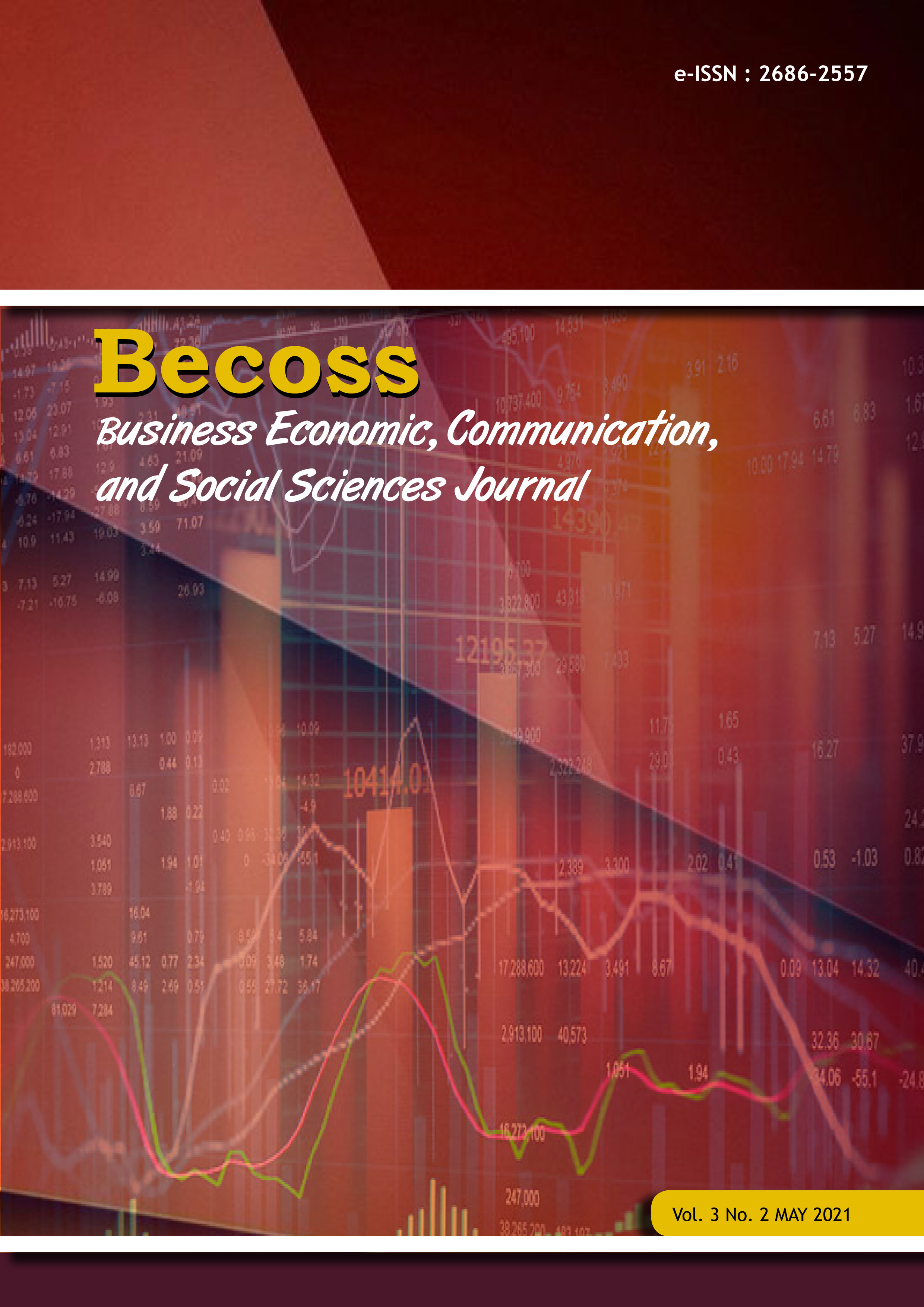Description of Implementation of Self-Regulated Learning on Student at The University of X
DOI:
https://doi.org/10.21512/becossjournal.v3i2.7500Keywords:
self-regulated learning, academic achievement, studentsAbstract
This research aims to provide a description regarding the implementation of Self-Regulated Learning on students at the University of X. This research was organized with quantitative methods with types of descriptive. Sampling method on this research using the technique of convenience with the number of participants of 110 students of University consist of 48 males and 62 females. Measurement of Self-Regulated Learning conducted using questionnaires which done by researchers based on 3 phases of Self-Regulated Learning, which are: (1) Forethought, (2) Performance and (3) Self-reflection. The result of this research showed that applying on the first phases which is the stage of Forethought relatively low with the gain of score of 2.62 compared to an average score of 2.82. However, the second phases, which is the stage of performance relatively high with the gain of score above average which is 2.90. the implementation of the third phases which the self-reflection quite high with the score of 2.94. On the research also found the relationship between Grade Point Average (GPA) and the implementation of the 3 phases of Self-Regulated Learning, which is the higher GPA score earned by students, the more optimal the implementation of 3 cycles of Self-Regulated Learning.
References
Departemen Pendidikan Nasional. (2016). Kamus besar bahasa Indonesia, 5th ed. (Jakarta: Balai Pustaka).
El‐Anzi, F.O. (2005). Academic achievement and its relationship with anxiety, self esteem, optimism, and pessimissm in kuwaiti students. Social Behavior and Personality. 33(1), 95‐104.
Ormrod, J.E., (2003). Educational psychology: developing learners, 4th ed. (New Jersey: Pearson Education inc).
Schunk, D. H. (2005). Self-regulated learning: the educational legacy of paul pintrich. Journal of Educational Psychology, 40(2), 85-94.
Schunk, D. H., Pintrich, J. L. & Meece. (2012). Motivasi dalam pendidikan, teori penelitian dan aplikasi, 3rd ed. Tjo. E (Penerj). (Jakarta: Indeks).
Song, D. (2017). Self-regulated learning. 3 Phases. Einbrain. https://einbrain.com/1773
Susetyo, Y. F. & Khumara, A. (2012). Orientasi tujuan, atribusi penyebab dan belajar berdasar regulasi diri. Jurnal Psikologi, 39(1), 95-111.
Woolfolk, A. (2010). Educational psychology. Upper saddle river, (NJ: Pearson Education International).
Zimmerman, B. J. (2001). Theories of self-regulated learning and academic achievement: An overview and analysis. Jurnal of Educational Psychology, 25(1), 3-17.
Zimmerman, B. J. (2000). Attaining self-regulation: A social cognitive perspective. In M. Boekaerts, P.R. Pintrich, and M. Zeidner (Eds.) Handbook of self- Regulation (pp. 13-39). (San Diego,CA, US: Academic).
Downloads
Published
How to Cite
Issue
Section
License
Copyright (c) 2021 Business Economic, Communication, and Social Sciences (BECOSS) Journal

This work is licensed under a Creative Commons Attribution-ShareAlike 4.0 International License.
Authors who publish with this journal agree to the following terms:
- Authors retain copyright and grant the journal right of first publication with the work simultaneously licensed under a Creative Commons Attribution License - Share Alike that allows others to share the work with an acknowledgment of the work's authorship and initial publication in this journal.
- Authors are able to enter into separate, additional contractual arrangements for the non-exclusive distribution of the journal's published version of the work (e.g., post it to an institutional repository or publish it in a book), with an acknowledgment of its initial publication in this journal.
- Authors are permitted and encouraged to post their work online (e.g., in institutional repositories or on their website) prior to and during the submission process, as it can lead to productive exchanges, as well as earlier and greater citation of published work.
USER RIGHTS
All articles published Open Access will be immediately and permanently free for everyone to read and download. We are continuously working with our author communities to select the best choice of license options, currently being defined for this journal as follows: Creative Commons Attribution-Share Alike (CC BY-SA)






